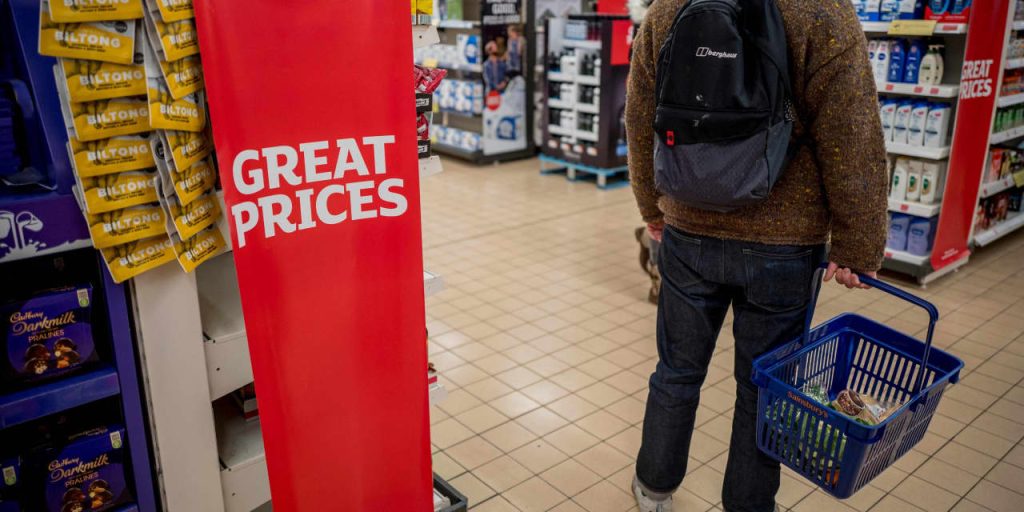The British pound and government bond yields fell, while stocks rose, after a report showing steady U.K. inflation raised hopes the Bank of England can soon consider trimming interest rates.
The Office for National Statistics on Wednesday said the headline consumer price index for the year to January increased 4%, the same as in December. Economists had expected inflation to pick up pace in January to 4.2%.
The month-on-month rate fell from 0.4% in December to minus 0.6% in January, double the decline anticipated by economists, as prices of furniture and household goods dropped, and food costs saw their first monthly decrease in two years, said the ONS.
The core annual inflation rate, which strips out more volatile items like food and energy, also stayed the same as the previous month, at 5.1%. Again, analysts had expected the slightly hotter figure of 5.2%.
The headline annual inflation rate, which hit a multi-decade high of 11.1% in October 2022, remains double the Bank of England’s 2% target. However, traders noted that even the central bank had expected a 4.1% figure for January, and the market consequently increased bets that the BoE’s monetary policy committee will in June cut interest rates by 25 basis points from the current 5.25%.
Investors moved into bonds, pushing the yield on the policy-sensitive 2-year gilt
BX:TMBMKGB-02Y
down 6.8 basis points to 4.613% around lunchtime in London. Sterling
GBPUSD,
+0.06%
tracked yields lower, shedding 0.3% to $1.2552.
“Investors exhaled a big sigh of relief as this morning’s U.K. inflation data came in cooler than virtually every economist had expected,” said Matthew Landon, global market strategist at J.P. Morgan Private Bank.
“We don’t expect to see that first cut come until around the middle of the year, but these sorts of prints give us and the markets more conviction about the direction of travel. That will likely support U.K. bond markets and keep some pressure on sterling over the near-term,” Landon added.
The prospect of lower borrowing costs also supported the London stock market, with the FTSE 100
UK:UKX
gaining 0.9%. Interest rate-sensitive sectors like homebuilders, real estate and utilities led the advance.
Companies with a high proportion of overseas earnings were also boosted by a weaker sterling noted Russ Mould, investment director at AJ Bell.
The inflation report “raises a prospect…of the Bank of England cutting its own rates before the U.S., and the subsequent drop in the pound has helped the big multinational names in the FTSE 100,” said Mould.
Elsewhere in Europe the mood was less effusive as a rally in U.S. equity index futures only recovered a portion of Wall Street’s heavy losses the day before. The DAX in Frankfurt added 0.4% and the CAC 40 in Paris rose 0.5%.
A notable underperformer on the continent included Heineken
HEIA,
-0.04%,
whose shares fell 5% after the Dutch brewer reported a slump in the volumes of beer it sold, caused by customers balking at higher prices.
In contrast, shares of Delivery Hero
DHER,
+1.62%
jumped 7% after after the German food delivery company said it had hit its financial goals for 2023 in posting its first-ever full-year profit.
Read the full article here



